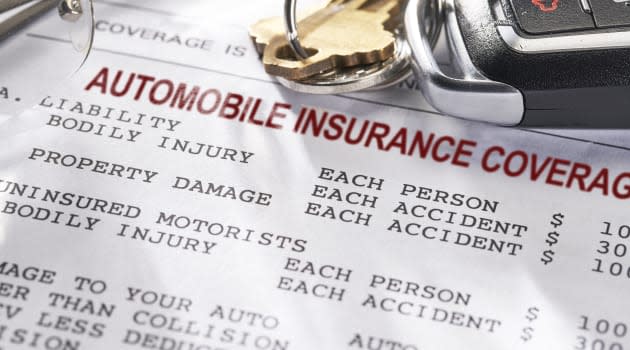One-Third of Americans Never Re-Shop for Car or Home Insurance: Survey

A recent survey from Policygenius discovered one-third of Americans have never re-shopped for a new policy for their homeowners or car insurance and nearly 50% of the policyholders who have searched around for a new policy haven’t done so in the last year. While it's easy to imagine less tedious ways to spend an afternoon than insurance shopping, such as having a root canal or hanging out at the DMV, ignoring the possibility of a better policy means you're fine with overpaying your insurance providers.
That's because insurance companies often change the rates on their policies every year in order to tighten their profit margins. Because the policy you purchased a year (or five) ago may not be the cheapest one that gives you the coverage you need, the average consumer saved $417 each year by shopping around for auto insurance. When it comes to saving on homeowners insurance, consumers can save between $363 and $2,182 annually, depending upon the state in which they reside. In general, the more expensive premiums are in a given area, the greater the difference there will be between the inexpensive and expensive plans.
How to get into the habit of re-shopping for insurance
The survey’s 1,542 respondents indicated the number one reason for not re-shopping was they thought the process would take too much time, yet 42% of Americans switched their car or homeowners policy after researching for better coverage.
You can save money on your homeowners and car insurance by taking the following steps:
Visit a trustworthy third-party site to make a comparison between homeowners insurance policies.To re-shop your homeowners insurance policy, visit an aggregator site to compare the policies and rates they offer. You’ll need to provide a few pieces of information, including:
Your name
Address
Social security number
Your home’s square footage
The renovation history of your home and the current condition of your home’s appliances
You’ll also need an estimate of how much your personal belongings are worth. And if you own a dog, you’ll have to specify the breed. That’s because one-third of home insurance liability claims are due to dogs, with Akitas, Rottweilers and pit bulls often being prohibited.
Do the same thing for auto insurance.To re-shop for auto insurance, visit an aggregator site. You’ll need to provide the following info:
Your name
Address
Driver’s license information
Occupation
Violations and accident information
Previous insurer and the vehicle’s year, make and model
The vehicle identification number
Any anti-theft features
Select only the coverage types and deductibles you need. Don’t just focus on the potential savings when it comes to lower premiums but make sure you have enough coverage, especially when it comes to property and casualty coverage.
Note the insurance policy's fine print. For instance, a replacement-cost homeowners policy pays out claims based on how much it would cost to replace damaged or destroyed property. But different carries can come to different conclusions as to the replacement cost, so you want to make sure you pick a policy that offers the coverage you need.
